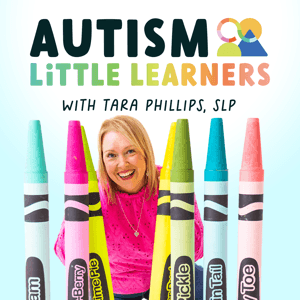This week, Emily Kircher-Morris sits down with Sol Smith, the founder of the NeuroSpicy Community and author of The Autistic's Guide to Self-Discovery. Sol brings two decades of education, and his lived experience as an Autistic, ADHD, and dyslexic individual, to the discussion.
They talk about the complex feelings of imposter syndrome that many neurodivergent adults face - the feeling that life is a stage play where everyone else got the script but you - and the difficulty of masking and unmasking. They also get into the science of how we think, including breaking down the difference between top-down and bottom-up processing, and the tricky world of meta-messages, which can often lead to misunderstandings among colleagues or family.
It's a great discussion on communication, identity, and the importance of finding your people.
TAKEAWAYS
-
Imposter syndrome often stems from feeling like you are performing a role rather than living authentically.
-
Unmasking is less about revealing a hidden self and more about resuming the development of your personality.
-
Top-down thinkers generalize based on concepts, while bottom-up thinkers build understanding from specific details.
-
Autistic individuals often miss implied "meta-messages" that neurotypical people rely on.
-
Asking for more context is a way to gain clarity, not a sign of defiance.
-
Predictable routines can act as a "neurotypical simulator" to save cognitive energy.
Therapists, register now for the continuing education course, Get It Done: How to Help Clients with ADHD (& Others) Improve Productivity. Dr. Ari Tuckman will join Emily for this APA and NBCC approved 1.5 hour continuing education training on Friday, February 6.
Sol Smith is the author of The Autistic's Guide to Self-Discovery and the founder of The Neurospicy Community, the largest support network for autistic and ADHD individuals worldwide. A certified autism specialist who is autistic, dyslexic, and has ADHD, Sol brings both personal insight and professional expertise to his work helping neurodivergent people build autonomy and self-understanding.
After more than 20 years as a college professor, Sol shifted his focus to coaching and advocacy, creating accessible education and support for the broader neurodivergent community. His engaging speaking style has earned him a global platform, with hundreds of thousands of followers on TikTok and invitations to lead neurodiversity seminars for major corporations. Sol lives in Southern California with his wife and four children.
BACKGROUND READING
The Autistic's Guide to Self-Discovery, Sol's website, TikTok, Instagram, Facebook, YouTube
The Neurodiversity Podcast is on Facebook, Instagram, BlueSky, and you're invited to join our Facebook Group. For more information go to www.NeurodiversityPodcast.com.
If you'd like members of your organization, school district, or company to know more about the subjects discussed on our podcast, Emily Kircher-Morris provides keynote addresses, workshops, and training sessions worldwide, in-person or virtually. You can choose from a list of established presentations, or work with Emily to develop a custom talk to fit your unique situation. To learn more, visit our website.



































